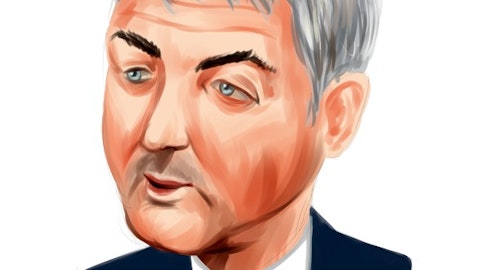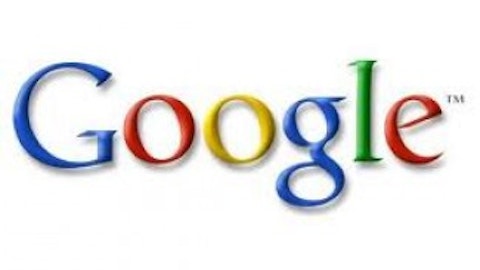Let’s play a game. We’re thinking of two companies. Can you guess who they are? They’re like Tom and Huck. Okay, maybe they’re more like Tom and Jerry, but this writer’s too inept at simile to get it perfect. They are two of the largest online retailers in the world. Since the start of 2012, the largest of the two (by market cap) has returned close to 40%, while its smaller peer has returned over 60%. We’ll give you one more clue. The former reported a third quarter loss last week, yet still trades at the highest earnings valuation of any stock on the S&P 500. The latter has generated a profit of at least 55 cents a share in four straight quarters, yet it trades at an earnings multiple of nearly 1/200th the value of its larger competitor. In case you’re still wondering – or failed to read the title of this article – the companies are Amazon.com, Inc. (NASDAQ:AMZN) and eBay Inc (NASDAQ:EBAY).
As mentioned above, both of these stocks have been great investments this year, but that doesn’t mean that their fortunes won’t diverge at some point in the future. Let’s start with Amazon. The online retailer with a whopping $100 billion market cap is seemingly impervious to a prolonged selloff. The company reported rather intriguing third quarter results last week. On the whole, Amazon reported a loss of 60 cents a share compared to net income of 14 cents a share one year earlier.
The statistic that markets seemed to pay attention to the most, though, was that its Q3 operating loss of $28 million was less than average consensus of -$42.1 million. In the day following the earnings report, shares of Amazon rose nearly 7%, back above the $230 mark.
Never mind the fact that Amazon’s loss excluding the effects of LivingSocial (-$0.23 a share) was far greater than analyst estimates of negative eight cents a share. Or that revenue growth of 27% missed expectations.
Never mind that the company’s daily deal acquisition had lost 95% of its original value since being purchased in 2010.
Heck, investors don’t even seem to care that Amazon’s operating margin has stayed below 2% in each of the past five quarters, and that it’s tablet line is facing ever-increasing competition from tech giants like Apple Inc (NASDAQ:AAPL) and Google Inc (NASDAQ:GOOG), and old foes like Barnes & Noble, Inc. (NYSE:BKS).
For most companies, these worries would be a death sentence in today’s market environment. Just take a look at Apple and Google for instance. Both companies are trading at below-average earnings multiples, yet are depressed by qualitative factors like leadership concerns or pre-released earnings reports. Each has experienced similar earnings woes as Amazon. Even Chipotle would be a better comparison for Amazon, as it was once considered to be worthy of an otherworldly valuation itself, before a same store sales miss of two percentage points caused a near $100 selloff in July. Amazon, though, is being treated differently.
Is it because the company is in a position to dominate the online retail market for the foreseeable future, without any real competition? Well, we know that that’s not the case, and can see that by looking no further than eBay.
See, while Amazon has spent the last year developing an uncompetitive cloud computing platform, while working on its entry into the crowded streaming content industry, eBay has focused on its core businesses. The company launched GiftsNearby last year, which gives it the ability to provide customers with product availability information in their local markets. By forming partnerships with traditional retailers Best Buy and Target, eBay is better positioned than Amazon to profit in the brick and mortar segment. PayPal’s streamlined integration with eBay gives the company another advantage over its larger, less focused competitor.
From a valuation standpoint, it’s not even close which of the two companies we’d rather have. Amazon, which currently sports a trailing P/E in excess of 300, is valued by the markets as a tech company even though the majority of its revenues are derived from non-exclusive product sales. By comparison, eBay is valued as it should be: a retailer. Unlike Amazon, the company sports sane valuation metrics, whether it’s in terms of P/E (16.9X), P/B (3.2X), or P/CF (18.9X) ratios. Amazon, meanwhile trades at an egregious book value multiple of 14.3X, and a cash flow multiple almost twice that of eBay.
Looking more in-depth at earnings, analysts do expect impressive EPS growth of 35.4% a year over the next half-decade from Amazon, but investors are far too bullish on these prospects. The PEG ratio, which normalizes earnings growth into its valuation, shows us that Amazon sports one of highest multiples out there, at 96.1. Although eBay is expected to grow its bottom line at close to one-third the rate of Amazon, it’s valuation is much more sound, at a PEG of 1.2. Apple (0.6), Google (1.4), and Barnes & Noble (0.1) all have PEGs that are far more in line with those of eBay than Amazon.
Thus, the question remains: why is Amazon treated differently than seemingly every other large cap stock out there?
While the stock’s most devoted bulls can claim that the company is sacrificing short-term prosperity for long-term domination, our response is easy: this expected domination is already factored into Amazon’s stock price. Investors then have to ask themselves two questions: 1) does Amazon’s recent earnings miss, LivingSocial gaffe, and increased tablet competition give any doubt about the markets’ wildly optimistic expectations, and 2) even if Amazon does meet these expectations, are there better investments in this industry at the moment?
If you answered yes to either of these questions – like we did – then it’d be best to consider investing in eBay instead of Amazon. We’d rather take the company’s present earnings stability, focus on core business operations, and sensible valuation over Amazon any day. Like Chipotle, one more earnings miss can potentially cause a massive revaluation, which would not be pretty. You’ve been warned.






